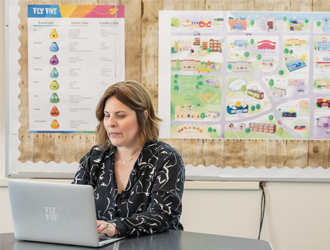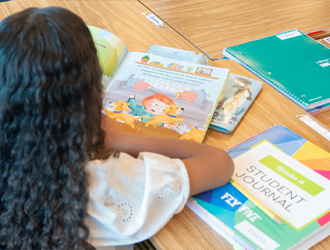Igniting Value in Your Parent Community

Everyone deserves to feel valued, seen, and heard. Sometimes, however, this is not necessarily what occurs. As an educator, it is more than likely that you have felt undervalued or underappreciated for the incredible work that you do. It is even more likely that you are not alone in this feeling. Parents, too, can regularly experience doubt or other obstacles when it comes to their place in the classroom and as a proponent of their child's education (Finders & Lewis, 1994). There are simple actions that you can take to show parents that they are important, respected, and valued.
Barriers to Belonging
There are numerous reasons why parents may not see the significance of the role they play in their child’s social, emotional, and academic development. One potential reason for this is that there are barriers preventing them from getting involved in the classroom. These barriers can include lack of time due to busy or conflicting schedules, transportation constraints, economic challenges, cultural beliefs and boundaries, language barriers, fear of being poorly perceived, and other similar factors (Finders & Lewis, 1994). It is also important to consider that many parents have doubts due to their own traumatic experiences of school from their youth. These experiences may deter them from feeling comfortable or important in educational settings and make them feel as though they do not belong (Finders & Lewis, 1994).

How to Remind Parents of Their Significance
- Ensure that all voices are heard. As a teacher, you likely have the voices of many parents in your ear. But chances are, there are some families that you do not hear from very often. It may not be the case that these parents don’t have anything to say, but rather that some of the barriers we discussed earlier are preventing these parents from believing that what they have to say is of value. Let these parents know that they are important by reaching out and checking in every once in a while. This could be done by email, phone call, or other preferred means.
- Emphasize the importance of diverse language, culture, and knowledge. Create opportunities to celebrate the differences in your school community. Consider hosting a multicultural celebration around the holidays where families can highlight their backgrounds by sharing cultural dishes, stories, and traditions with the class. If possible, see if parent professions or knowledge align with class curriculum and look for opportunities to invite them into the class. These interactions not only show parents their distinct value, but they also give students diverse perspectives and role models to learn from.
- Communicate meaningfully. Without taking up too much of your limited time, find quick and simple ways to remind parents of their importance and show that they are a valuable piece of their child’s growth with small but meaningful interactions. Consider the following suggestions as a place to start:
- “Looking forward to speaking with you later this week! Take a look at the following times and let me know what works for you.”
“This week in class, we are learning about friendship. At home, it would be great if you could share a story about a time that a friend helped you or talk about what friendship means to you.”

Reassure parents that they are invited to get involved and interact with you, even if that involvement is as simple as a phone call every once in a while. Also, by learning more about your students, their families, and what they do at home, you can help parents make connections between things they are already doing at home and what students are learning in class. This can help affirm to parents that they are an important part of their child’s social, emotional, and academic learning. Finally, remember that parents often equate their value in the school community to their involvement. Clarify that involvement doesn’t have to look like spending time in the classroom, but rather can take place in small, meaningful interactions that have a big impact.
References
Finders, M., & Lewis, C. (1994). Why some parents don't come to school. Educational Leadership, 51(8). https://www.ascd.org/el/articles/why-some-parents-dont-come-to-school







